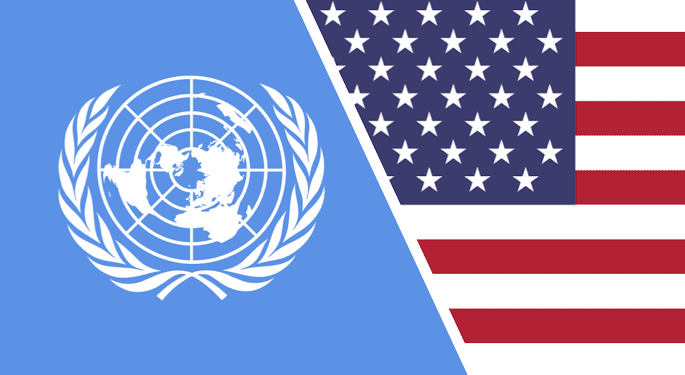In a bold move that reflects growing frustration with the United Nations’ inefficiency, the United States has declared the formation of its own international governing body, the U.S.U.N. The announcement, made on Monday, comes after years of what U.S. officials described as the U.N.’s “consistent, blatant disregard for the will of its 188 member nations.” The new body will be based in Houston, Texas, and will have its own set of policies and objectives.
The Need for Change
U.S. Secretary General Colin Powell voiced the government’s dissatisfaction with the U.N. during the press conference. He criticized the organization for its inability to act swiftly on issues that the U.S. deems urgent. “Every time we tried to get something accomplished, it inevitably got bogged down in procedural policies, bureaucratic formalities, and Security Council votes,” Powell stated. His frustration, shared by many within the U.S. government, led to the creation of the U.S.U.N., which aims to be more decisive in global matters.
U.S.U.N.’s Mission and Structure
The U.S.U.N. aims to expand global peace, economic, social, and humanitarian progress but with one key difference: all actions will defer to U.S. interests. The body will mirror the structure of the original United Nations, with a Security Council and General Assembly. However, unlike the U.N., it will be free from the influence of smaller, opposing nations.
The organization’s headquarters, currently under construction in Houston, will house a $400 million building. The U.S.U.N. Charter was ratified by delegates in a four-minute vote, reflecting the organization’s swift, efficient approach to governance. According to the U.S.U.N. Charter, its mission is to promote international development while prioritizing American objectives.
U.S. Leadership and Global Influence
Condoleezza Rice, a U.S. delegate to the U.S.U.N., described the organization as a more focused version of the U.N. She emphasized that peacekeeping missions carried out by the U.S.U.N. would not face opposition from less influential nations. In its first official act, the U.S.U.N. Security Council unanimously passed a resolution to liberate Iraq’s people and natural resources from Saddam Hussein’s regime.
While the U.S.U.N. aims to promote peace, its mission includes prioritizing U.S. interests in the process. The organization’s structure is designed to ensure that decisions align with American values and goals. Dick Cheney, another U.S. delegate, highlighted how much easier it is to achieve consensus within the U.S.U.N. He pointed out that in the past, the U.S. had to compromise with smaller nations for support in peacekeeping missions. “I can’t tell you how much easier it is to achieve consensus when you don’t have to worry about dissent,” Cheney remarked.
Governance and Global Representation
The U.S.U.N. Security Council will consist of 15 members, including five permanent members: Dick Cheney, Condoleezza Rice, Donald Rumsfeld, Tom Ridge, and George W. Bush. These members hold veto power over any military action proposed by the Council. It’s official language will be English, and Christianity will be its official religion, further emphasizing its alignment with U.S. values and beliefs.
While the new body claims to be a global institution, its formation has drawn questions about its potential impact on international cooperation. Critics argue that sidelining the U.N. and forming a U.S.-centric body could further polarize international relations. However, U.S. officials remain confident that the organization will rise to prominence on the world stage and drive global policies in line with American priorities.
The Future of Global Governance
The creation of the U.S.U.N. signals a new era in international relations. With a focus on achieving U.S. objectives and minimizing opposition, the body promises to reshape global diplomacy. The U.S. government believes that it will provide a more efficient, results-oriented approach to tackling global challenges. Time will tell whether the it will garner global support or face resistance from the international community.
Related Stories:
US President Donald Trump Unveils National Security Initiatives
US Policy on Syria Criticized for Complicity in Regime Atrocities
United States vetoes Gaza ceasefire resolution at Security Council for the Fourth Time
















